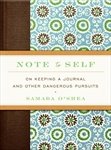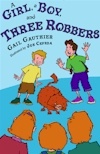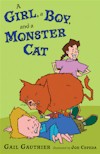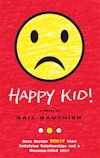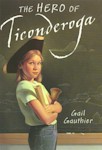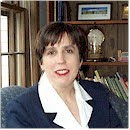Yesterday I walked over to the
UConn Co-op from a family member's home, a little under a two-mile walk round trip. I went over the weekend before, too, but hadn't brought any money with me. Thus the return trip.
The UConn Co-op is an independent bookstore, unlike some college bookstores that are run by chains. So you don't get the same old, same old when you're walking through its offerings.
Take graphic novels, for instance. When I look at the graphic novels at chain bookstores, I see a lot of superhero stuff and manga. The Co-op had a lot of the more unique, individual novels told graphically that I tend to be more interested in, as well as nonfiction, such as
French Milk, that looked appealing.
I overheard something interesting while I was there. For some reason, a lot of parents and family groups were wandering around yesterday. (Perhaps the elders were there to make sure their kids hadn't been arrested at a
spring break party.) One young man directed his family's attention to the book area by saying, "There's the Barnes & Noble stuff." Then he pointed out where the computer items were kept and maybe the tee-shirts, etc.
Think about it: When the big box bookchains first opened, they were modeling themselves on bookstores. Now people have to compare a bookstore to a Barnes & Noble in order to understand what goes on in one?
What are they teaching these young people at college these days?
Anyway, I blew my entire Christmas Co-op gift card on
Leonard Marcus's
Minders of Make Believe. I have a copy from the library, but I've already renewed it once, and I've only read a few pages. But those few pages made me want to underline like crazy! Lots of facts! About Puritans! I love the Puritans! Plus Marcus uses
footnotes. Do you know how often I read nonfiction that has no footnotes? Do you have any idea how much that annoys me? So I decided I wanted my own copy.
So I'm walking back with my purchase, and I'm thinking that I can't start reading it until I finish reading
Budo Secrets by
John Stevens because I read only one nonfiction book at a time, and a guy from the
dojang loaned me this thing maybe half a year ago. I would never mention
Budo Secrets here because it's not related to my blog subjects,
but as I was walking back to my in-laws' house, I suddenly realized that I could use a
Budo Secrets-type book in the 365 Story Project! That means it is related.
I also realized that the 365 Story Project has no grandparents, and what's that about? The kids in the episodes are only ten and fourteen years old. What are the chances that all four of their grandparents would be dead? I decided I had to do something about that.
So it was quite a productive hour--a nearly two-mile walk, a happy wander in the Co-op, a book purchase, and some 365 Story Project work.
Training Report: I was away from the house a lot last week, which is why posting here was spottier than usual. I managed to get seven episodes written for the 365 Story Project, though, and a short story manuscript submitted to a journal. I was able to do that much because on Monday I happened to work out what the next seven or more episodes would be about. This means that either A. my father was right and a job well planned is a job half done; or B. I have now reached that stage at which if I'm given any topic I'll blurt out something about it no matter what.
I've got to step it up a notch or five or six because I'm still more than a month behind with these 365 Story stories. Trying to catch up is keeping me from working on other projects. I knocked off three segments today, though.
Labels: Bookstores, writing process

